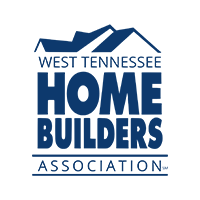In a move that will raise housing costs, the U.S. Department of Housing and Urban Development (HUD), the Federal Housing Administration (FHA) and the U.S. Department of Agriculture (USDA) are proposing to increase the stringency of energy codes for the new construction of HUD-insured and USDA-insured housing.
Under current law, builders constructing new single-family and multifamily housing using this government financing must conform to the 2009 edition of the International Energy Conservation Code for single-family/low-rise buildings and the 2007 edition of ASHRAE 90.1 for multifamily buildings with four or more stories.
The Biden administration is proposing that the new construction of homes under certain federally financed programs leapfrogs several code iterations and adopts the 2021 International Energy Conservation Code (IECC) and ASHRAE 90.1-2019 codes.
The largest single category of new housing likely to be impacted by the proposal is FHA-insured homes. Additional programs impacted by this plan are FHA-insured multifamily programs; the HOME Investment Partnerships Program and Housing Trust Fund program; Section 202 and 811 Supportive Housing competitive grants, Rental Assistance Demonstration (RAD) housing; Public Housing Capital Fund, Choice Neighborhoods; USDA Section 502 direct or guaranteed loans and Section 523 grants.
Programs excluded from this new directive include the Community Development Block Grant program, the Community Development Block Grant Disaster Recovery program, the Community Development Block Grant Mitigation program, Indian Housing programs, Housing Choice Vouchers and Continuum of Care.
Homes built under 2015 or 2018 energy codes are already highly energy efficient, and a mandate to these stricter codes could add thousands of dollars to the cost of new single-family homes and apartment units with energy savings often not commensurate with the level of required upfront investment. HUD should review cost-effectiveness and feasibility of individual energy measures and code requirements, and prioritize solutions that maximize benefit to the consumer and expand the number of compliance options for building designers.
HUD will hold a public comment period, which will open in mid-May. Interested parties can submit comments through the Federal Register or during one of HUD’s three live listening sessions.
- Listening Session 1 (June 1, 3-4:30 p.m. ET)
State, local and tribal elected officials, local code officials and government representatives
Register - Listening Session 2 (June 6, 3-4:30 p.m. ET)
General public
Register - Listening Session 3 (June 8, 3-4:30 p.m. ET)
Single-family and multifamily financing and building industry representatives
Register
